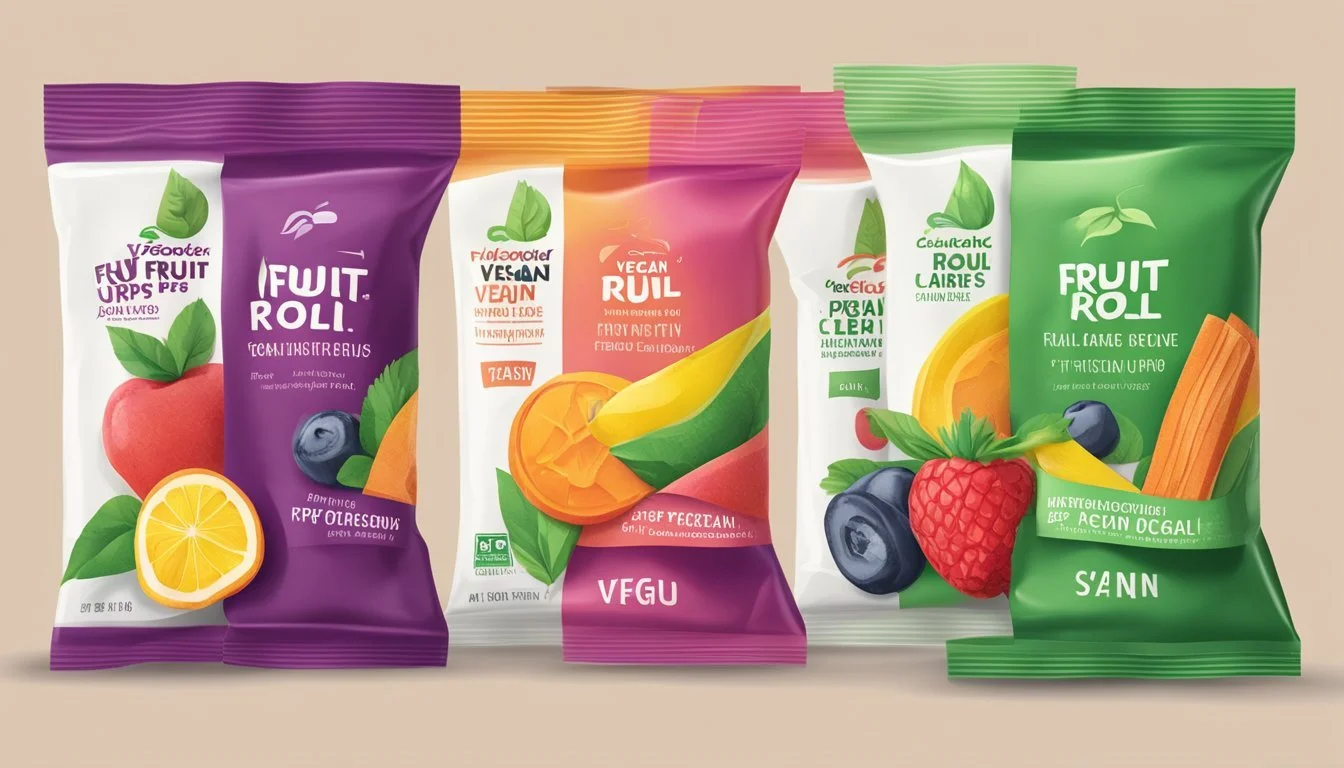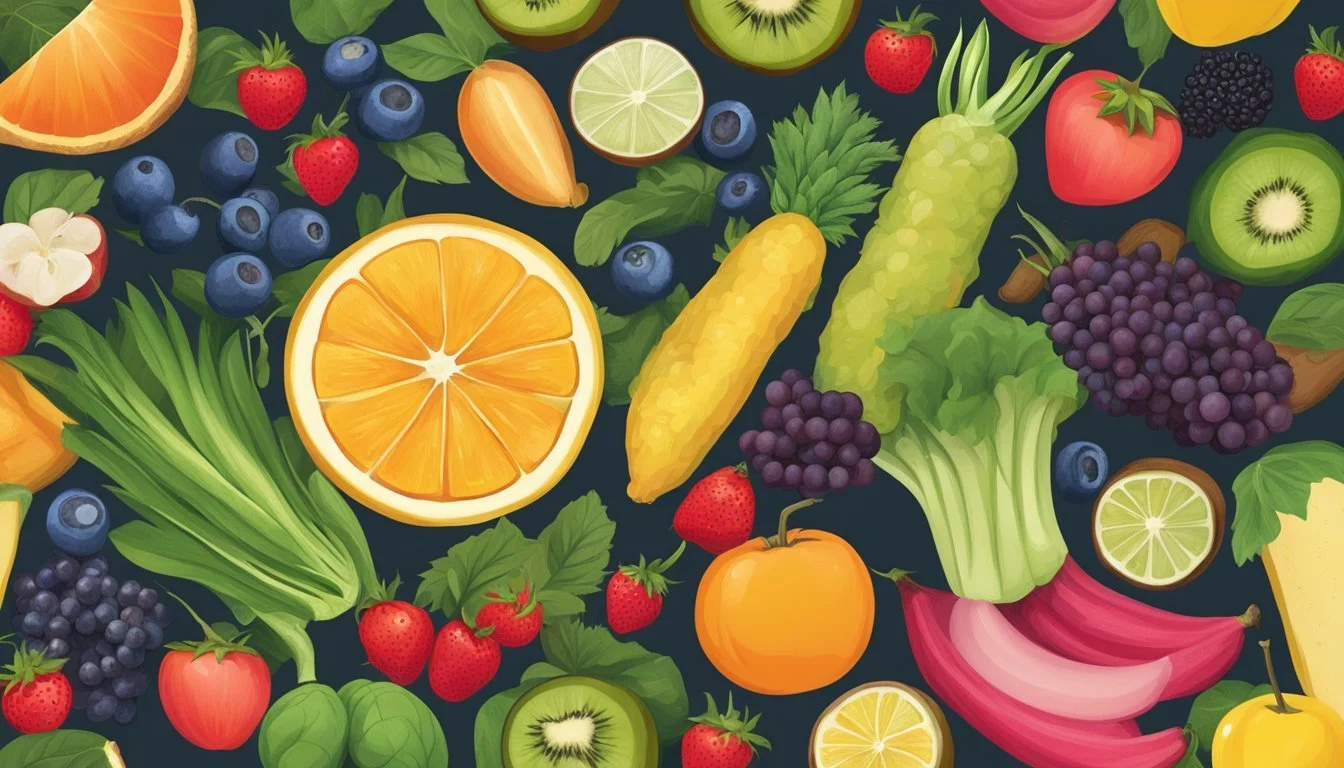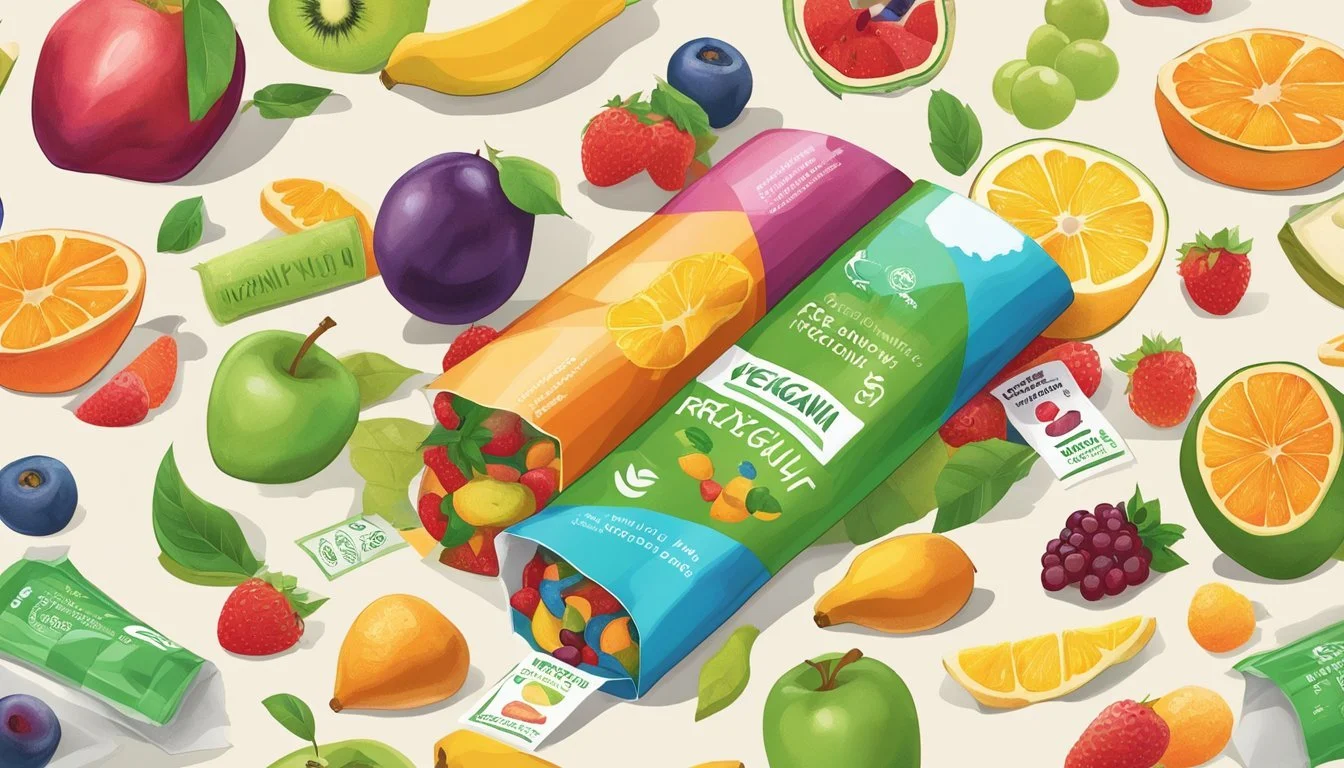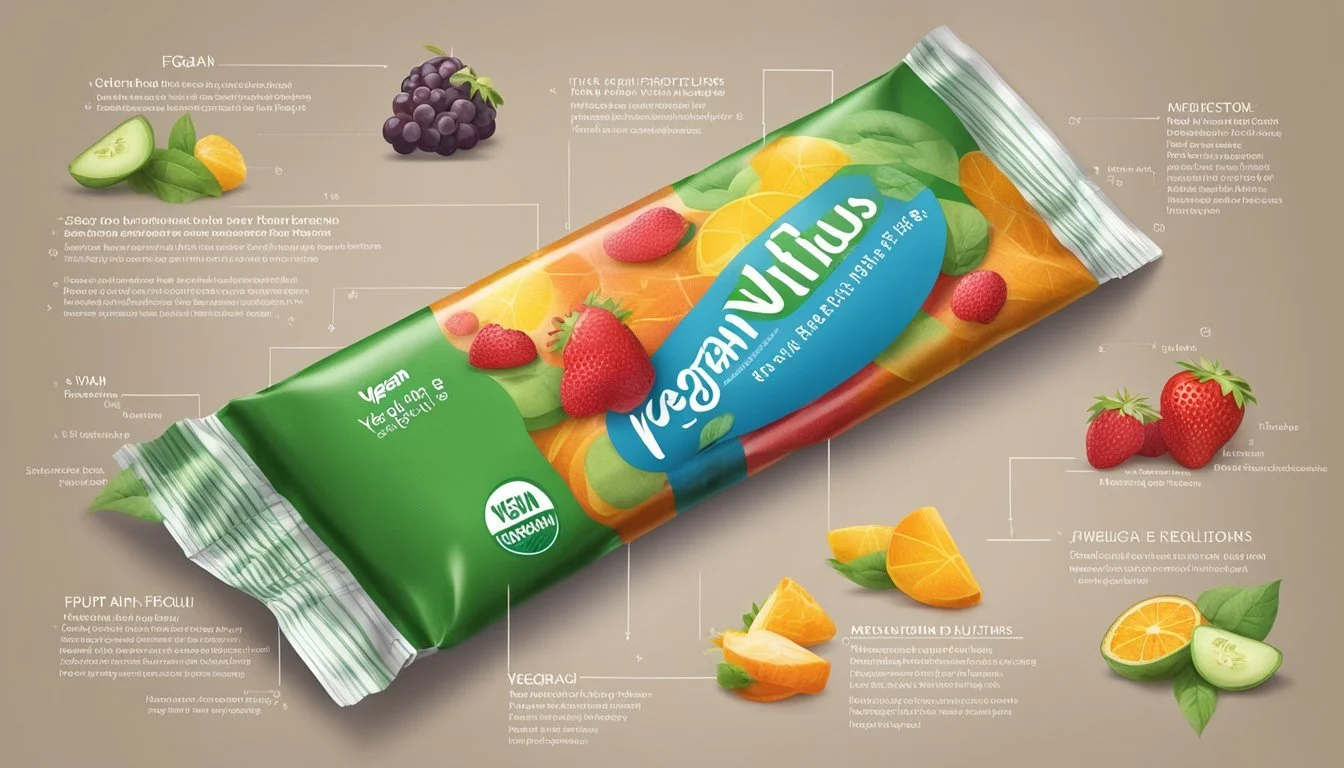Are Fruit Roll-Ups Vegan?
Unwrapping the Truth About Their Ingredients
When assessing whether Fruit (What wine goes well with fruit?) Roll-Ups are vegan, it is essential to understand what veganism entails. Veganism requires the exclusion of all animal products and byproducts in both diet and lifestyle. Fruit Roll-Ups, a popular fruit-flavored snack, claim to be made from fruit and other plant-based ingredients. They do not contain ingredients that are directly derived from animals, which initially presents them as suitable for a vegan diet.
However, the consideration of whether Fruit Roll-Ups are truly vegan-friendly involves scrutinizing their ingredients list. Ingredients such as corn syrup, sugar, natural flavors, and artificial coloring agents, found in Fruit Roll-Ups, may raise questions among vegans due to their processing methods or sources. For instance, sugar processing sometimes utilizes bone char from animals, and certain colorings can be tested on animals. These factors contribute to the debate over whether Fruit Roll-Ups can be classified as vegan without qualification.
To provide a definitive answer on the vegan status of Fruit Roll-Ups, one must consider the broader ethical implications associated with some of these contentious ingredients. While the snacks do not include overt animal-derived ingredients, the ethical considerations surrounding the production of some components like palm oil and natural colors might influence a vegan's decision to consume them. As such, the vegan community often views Fruit Roll-Ups through a lens that considers both the direct ingredients and the implications of their production processes.
What Are Fruit Roll-Ups?
Fruit Roll-Ups are a fruit snack product line manufactured by General Mills under the Betty Crocker brand, known for their rolled form and vibrant colors.
Ingredients Overview
Fruit Roll-Ups principally contain corn syrup, sugar, and pear puree concentrate. They also include less than 2% of various other ingredients such as sodium citrate, citric acid, fruit pectin, and natural flavors. Additional components comprise ascorbic acid (Vitamin C), malic acid, and red 40, blue 1, which are all artificial colors used to enhance the product's appearance.
Primary Ingredients:
Corn syrup
Sugar
Pear puree concentrate
Secondary Ingredients:
Sodium citrate
Citric acid
Fruit pectin
Natural flavors
Artificial colors (Red 40, Blue 1)
Fruit Roll-Ups and Nutrition
Each Fruit Roll-Up typically contains a considerable amount of sugar and provides a minimal amount of essential nutrients. As a source of Vitamin C, the product contains ascorbic acid, which helps preserve the fruit snack and contributes to the daily vitamin requirement. It's important to consider the nutritional profile when evaluating them as part of a diet.
Nutrient Highlights:
High in sugar
Contains Vitamin C (ascorbic acid)
Product Variants
Fruit Roll-Ups come in a variety of flavors, such as Strawberry Sensation, Tropical Tie-Dye, and Blastin’ Berry Hot Colors. Each variant may contain different additional ingredients to create unique flavor profiles. For example, the Flavor Mixers variety allows consumers to combine flavors within a single pack.
Flavors Example:
Strawberry Sensation
Tropical Tie-Dye
Blastin’ Berry Hot Colors
Flavor Mixers
Veganism and Fruit Roll-Ups
When examining whether Fruit Roll-Ups align with a vegan lifestyle, it's essential to scrutinize their ingredients, understand challenges within vegan food processing, and consider available alternatives that adhere to strict vegan standards.
Animal-Derived Ingredients
Fruit Roll-Ups, according to their ingredient list, do not include direct animal-derived components like gelatin, dairy, beeswax, confectioner’s glaze, or honey. These ingredients are commonly used in various snacks but are absent in Fruit Roll-Ups, making them suitable for individuals avoiding animal products.
Controversial Ingredients in Veganism
Despite being free from direct animal products, Fruit Roll-Ups contain ingredients that might be contentious in the vegan community. Sugar might be processed with bone char, although it's not specified for this product. Natural flavors can be ambiguous, occasionally derived from animal sources. Additionally, the use of palm oil raises ethical concerns due to the environmental impact of its production. Lastly, artificial colors such as Red 40 are tested on animals, which some vegans find objectionable.
Controversial Ingredient Concern Sugar Bone char processing (not always labeled) Natural Flavors Sometimes contain animal-derived elements Palm Oil Ethical concerns with deforestation Red 40 Animal testing involved in production
Alternatives and Substitutes
For those seeking alternatives more in line with vegan ethics, there are recipes for homemade Fruit Roll-Ups that use organic cane sugar and plant-based colors. Some store-bought substitutes prioritize transparency and avoid the controversial ingredients noted above, catering to a more ethical vegan lifestyle. These alternatives often promote the use of organic and replacement ingredients that maintain the vegan standard.
Homemade recipes: Allows for control over all ingredients used.
Organic substitutes: Typically use plant-based, ethical ingredient sources.
Health and Dietary Considerations
When assessing whether Fruit Roll-Ups are suitable for various diets, it is essential to consider the presence of additives, potential allergens, and the snack's impact on children's health.
Additives and Preservatives
Fruit Roll-Ups contain various additives and preservatives to enhance flavor, extend shelf life, and improve texture. Key ingredients often include corn syrup and sugar, both of which are plant-based and suitable for vegan diets. However, they contribute to the product's high sugar content. Additionally, some flavors may contain food colorants like Red 40, which, while vegan, are synthetic and have been the subject of health discussions. Parents and caregivers may need to consider the implications of artificial additives on children's health and behavior.
Allergens and Intolerances
While Fruit Roll-Ups are not known to contain nuts or gluten, they are produced in facilities that may also process these allergens, posing a risk of cross-contamination. Individuals with severe allergies or intolerances should review manufacturing practices and potentially avoid these snacks. For those following a gluten-free diet for health reasons, Fruit Roll-Ups may be considered safe as they don't inherently contain gluten-containing ingredients.
Impact on Children
The impact of Fruit Roll-Ups on children's health is multifaceted. They are free from animal products, making them a congruent option for children on a vegan diet. However, they are rich in sugars, including corn syrup and dried corn syrup, which can contribute significantly to daily sugar intake. Parents should be aware of dietary guidelines recommending limited sugar consumption for children to promote overall health and prevent potential long-term negative health outcomes.
Ethical and Environmental Considerations
When assessing the vegan status of Fruit Roll-Ups, ethical and environmental considerations play a significant role. These encompass sustainable practices, animal welfare, and the availability of eco-friendly alternatives.
Sustainable Practices
Fruit Roll-Ups' manufacturers may employ sustainable options to minimize their environmental impact. The use of plant-based waxes in packaging and sustainable methods to source ingredients like corn syrup and sugar can contribute to broader environmental goals, such as reducing deforestation and conserving biodiversity.
Animal Welfare
The vegan community often examines whether products are tested on animals or if their production violates animal rights. For Fruit Roll-Ups to be considered vegan, the production process must not involve any form of animal testing and should adhere to strict ethical standards, ensuring that all practices respect animal welfare.
Eco-Friendly Alternatives
Consumers who adopt a vegan diet for health reasons or environmental concerns also seek products that offer eco-friendly alternatives. If Fruit Roll-Ups contain ingredients associated with high environmental impact, consumers may look for other snacks that align more closely with their ethical and environmental principles.
Labeling and Regulations
In the United States, food product labeling is regulated to ensure that consumers have accurate information about the ingredients and processing of what they eat. Understanding these regulations can help in determining if products like Fruit Roll-Ups align with vegan dietary choices.
Food Labeling Laws
Under the Food and Drug Administration (FDA), there are comprehensive guidelines that dictate how food labels should disclose ingredients, making it easier for vegans to identify animal-derived substances. Labels must list all ingredients in processed foods, allowing consumers to check for non-vegan items. For instance, vegans can look for specific terms such as "gelatin" to avoid as it is animal-derived, or "pectin," which is plant-based.
Vegan Certification
Vegan certifications are third-party validations obtained by manufacturers to assure consumers that their food products contain no animal ingredients or byproducts. These certifications often involve scrutinizing the sourcing and processing of ingredients. Products bearing a vegan label have been assessed by organizations like the Vegan Society, ensuring compliance with vegan standards.
Consumer Awareness
Consumer awareness is pivotal in navigating the realm of vegan labels and certifications. A product claiming to be "gluten-free" or "organic" does not inherently mean it's vegan. It is the consumer's responsibility to read and understand labels, looking for certifications or specific non-vegan ingredients that may not align with their dietary preferences. This vigilance is particularly necessary as the FDA does not currently mandate vegan labeling for food products, leaving it largely to consumers to research and verify vegan claims.
Making Homemade Fruit Roll-Ups
Homemade fruit roll-ups provide a nutritious snack option that leverages real fruits and plant-based ingredients. They are a health-conscious alternative to store-bought varieties, often packed with natural fibers and the nutritional benefits of whole fruits.
Natural Ingredients
Homemade fruit roll-ups, also known as fruit leather, start with a foundation of real fruit puree. This can be made from a variety of fruits such as berries, apples, or mangoes. The key is to select ripe and naturally sweet fruits to minimize the need for added sugars. The puree is typically made by blending the fruits until smooth, ensuring that the fiber-rich skins are included to maximize health benefits.
Vegan Recipes
To ensure fruit roll-ups are vegan, one must carefully select plant-based ingredients, avoiding animal-derived additives like gelatin. A basic vegan recipe might include a simple combination of fruit puree, a sweetener like agave syrup or date paste, and an optional acid such as lemon juice, which helps in preserving color and enhancing taste.
Healthier Options
Opting to make fruit roll-ups at home allows for healthier choices. One can control the amount and type of sweetener, ensuring it aligns with their dietary preferences. Additionally, these treats can be made without preservatives or artificial colorings, commonly found in commercial versions. The result is a snack that retains more of the fruit's original nutritional value, including vitamins, minerals, and fibers, supporting overall health.
Conclusion
Fruit Roll-Ups present a challenge for vegans due to the lack of comprehensive information regarding ingredient sourcing. While the primary ingredients in Fruit Roll-Ups, such as corn syrup and fruit concentrates, are plant-based, the product's vegan status is uncertain. This uncertainty arises from certain additives which may or may not be derived from animal sources.
Those interested in maintaining a vegan diet must consider the presence of controversial ingredients such as sugar, which can be processed using bone char, and natural flavors or colors, the origins of which are not always transparent. Individuals should also account for the fact that manufacturing processes and ingredient suppliers can change, leading to potential cross-contamination with non-vegan products.
In cases where the vegan status of a product is ambiguous, consumers may opt to contact the manufacturer directly or avoid the product altogether. Alternatively, those looking for certainty can make their own vegan fruit roll-ups at home using verified vegan ingredients to ensure alignment with their dietary and ethical standards.
It is recommended that consumers conduct thorough research and possibly seek out certified vegan alternatives to guarantee that their choices are consistent with a vegan lifestyle.






